Designed to keep raccoons from rummaging through the city’s garbage and leaving a mess in their wake, “raccoon-resistant” green bins were designed to be foolproof. However, with city-wide reports of these furry robbers breaking into (what should have been impenetrable) bins, citizens can’t help but wonder: Does Toronto have smarter raccoons?
Before the last new-and-improved green bins rolled into neighbourhoods, a number of citizens began fretting about raccoon health. Concerned Torontonians asked whether these “weapons” in Toronto’s war against raccoons will starve the masked bandits, eliminating a primary food source and causing their numbers to dwindle.
Fortunately (or unfortunately, depending on your opinion), raccoons in The Big Smoke are not in danger of starvation. York University professor and raccoon expert/enthusiast Suzanne MacDonald states that early results from her multi-year study on raccoons reveal they are “as fat as ever.” These night prowlers are highly intelligent creatures. They cunningly find food sources in the city by:
- Stealing from other animals (pet food and bird feeders)
- Eating other animals (insects and smaller creatures).
However, are they smart enough to circumvent the state-of-the-art receptacles specially designed to keep wandering “trash panda” paws at bay?
Toronto Raccoon History
With over 100,000 raccoons now residing in the area, Toronto earned the moniker “Raccoon Capital of the World.” The city has, for years, been locked in a seemingly never-ending battle of man versus beast, with residents and the local government pitted against this furry criminal invasion.
What is anecdotally known as Toronto’s “Great Raccoon War” began innocently enough. A well-meaning attempt to reduce the organic waste being dumped in landfills, Toronto’s green bin program began in 2002. The objective was to separate organic waste from other garbage and collect it for compost — no one was prepared for the consequences.
Raccoons, drawn to the scent of organic food waste, saw it as an invitation to dine. With ample food supply at their disposal, these wildlife flocked into the back alleys behind restaurants and the backyards of unsuspecting homeowners. They wreak havoc on dumpsters and bins, leaving behind a mess and a risk for disease exposure.
In 2016, the Toronto Government began distributing a new green bin with an intricate locking mechanism. The idea behind it? — to be impenetrable to raccoons. After a few months of diminished raccoon activity around the advanced bins, raccoon enthusiasts began to wonder if the drastically-reduced food source would reduce the raccoon population.
Soon, however, reports and video evidence of raccoons successfully opening these green bins started to be shared online. The “war” is far from over. The enemy regained the upper hand (or paw).
Faulty Lids or Smarter Raccoons?
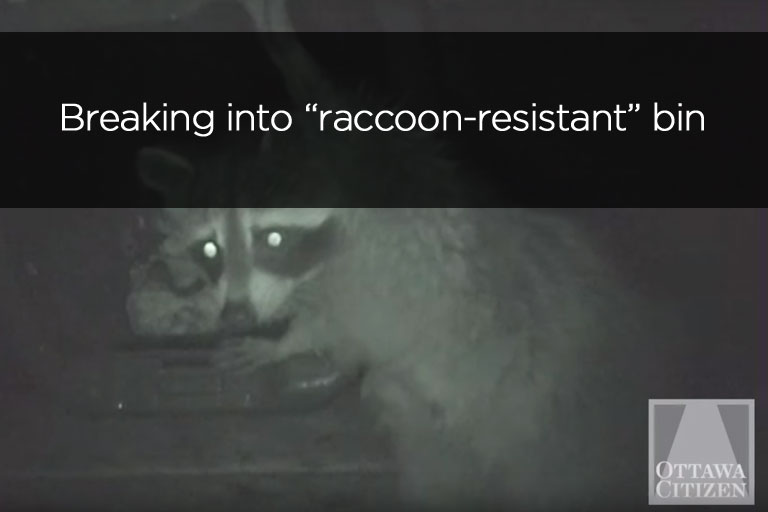
Credit: ottawacitizen.com
When they began receiving complaints, city officials investigated the raccoon green bin problem. Ransacked bins (or lids) were replaced with fresh ones from the factory. When asked about these break-ins, authorities chalked it up to factory defect.
Reporter Amy Dempsey launched an inquiry to discover how these marauding creatures were getting into the bins and if Toronto was up against a new breed of genius raccoons.
She caught on camera a mother raccoon tipping and opening Dempsey’s newly-replaced green bin without much trouble. She suggests that this particular raccoon (and perhaps others) somehow perceived that knocking the bin over (perhaps repeatedly) loosens the locking mechanism, providing easy access to its contents.
When Dempsey reported her findings to MacDonald, the York University professor revealed (with a laugh and a cheer) that some raccoons are in fact smarter than others. She infers that the continued raids on organic waste bins are isolated to neighbourhoods with one (or two) raccoons smart enough to find out how to loosen the locking mechanism. However, raccoons are unable to “teach” furry friends these techniques; it’s unlikely they’ll spread the word to their community.
So long as there’s plentiful human food to be consumed, raccoons will remain within city limits and stay as adorable, aggravating, and/or threatening as ever.
Dangers of Raccoons
Toronto is known for a love-hate relationship with raccoons. While many believe that euthanizing them is the answer to curbing the nuisance, others are decidedly on “Team Raccoon.” Supporters, however, need to keep in mind that no matter how charming these night prowlers may seem, raccoons are not pets and shouldn’t be treated as such.
They can transmit several known diseases (including leptospirosis and rabies). Raccoon droppings might carry roundworms that can cause blindness or coma in humans.
No matter how the city has tried to prohibit these perceptive and inventive critters from trespassing on urban properties, raccoons have multiplied, made their homes in Toronto, and are likely here to stay.
If you find that your green bin has fallen prey to these nighttime marauders, there is little you can do, other than adding bungee cords or cinder blocks as a raccoon deterrent. If you have a raccoon colony taking up residence under your porch, deck, or trying to invade your home, call Liddle Rascals. We offer raccoon and wildlife removal throughout Toronto and neighbouring areas.
Using humane methods, we’ll relocate nuisance wildlife far from your home or business property, and secure the building structure to prevent future invasions. For raccoon removal in the Greater Toronto Area, call us at (416) 356-5886.
Expert Skunk and Wildlife Removal in the Greater Toronto Area
We are available 24 hours a day, seven days a week.
Call us at (416) 356-5886 or contact us online.





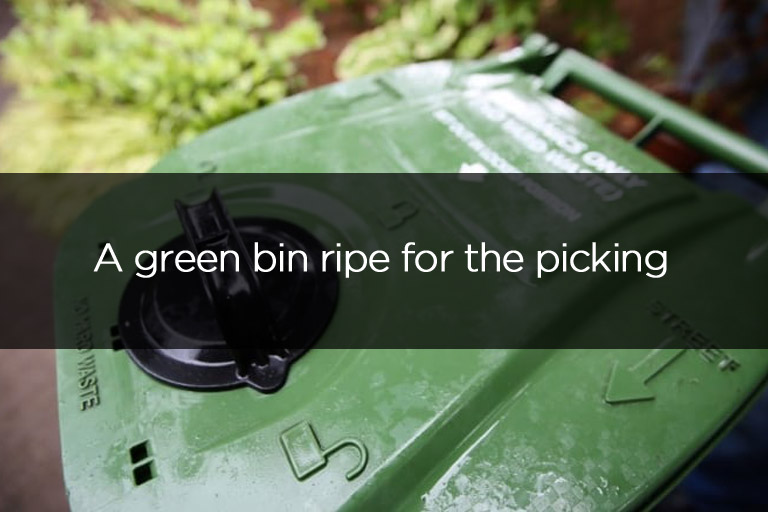
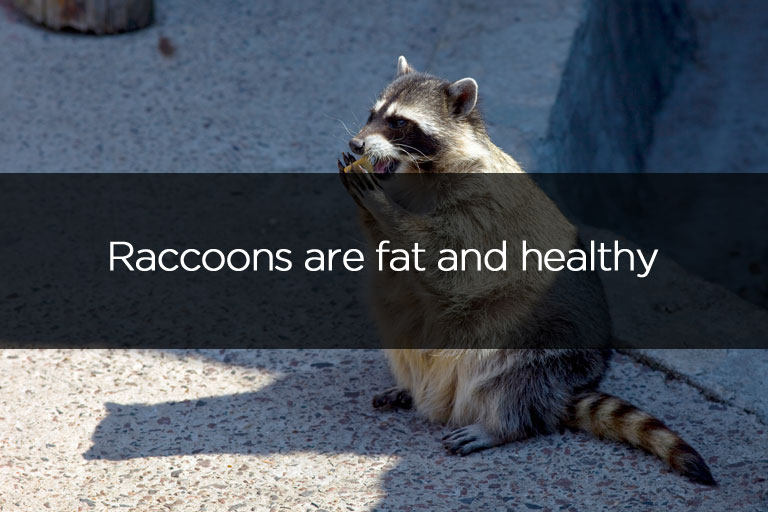

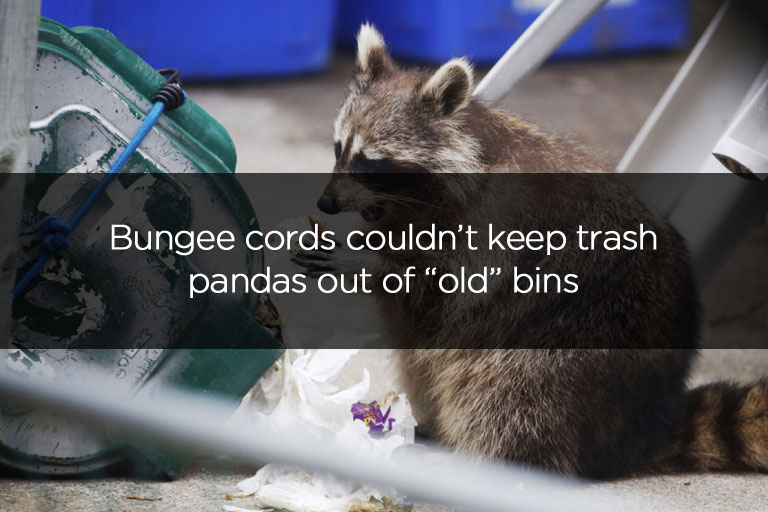
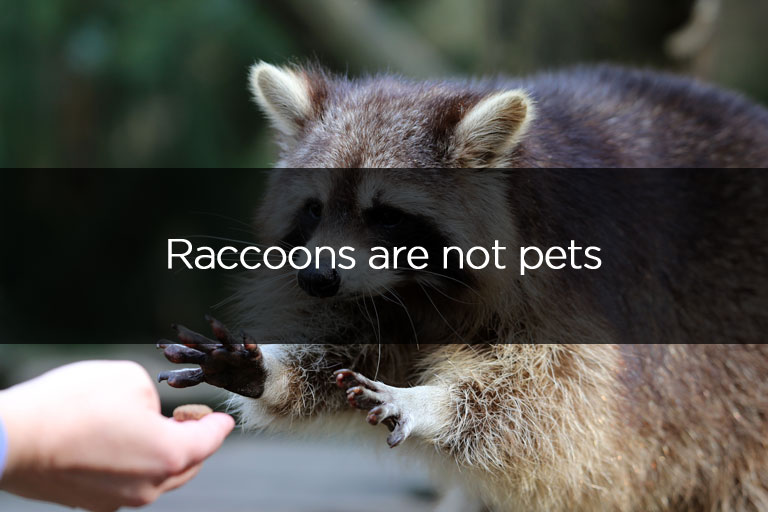

Leave a Reply
You must be logged in to post a comment.